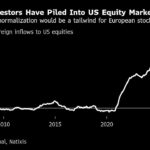
Ben Bernanke, former chairman of the Federal Reserve, has been a vocal skeptic on bitcoin BTCUSD, +0.03%. He’s stated that the cryptocurrency has no underlying value and cannot act as a store of value, which renders it not credible as a currency.
“If bitcoin were a substitute for fiat money, you could use bitcoin to go buy your groceries. Nobody buys groceries with bitcoin because it’s too expensive and too inconvenient to do that,” Bernanke said in a CNBC interview in May. “The price of celery varies radically day to day in terms of bitcoin and so there’s no stability either in the value of bitcoin”.
Bernanke is missing the point of bitcoin and the more than 10,000 other active cryptocurrencies. Even after this most recent crypto crash, cryptocurrency is not about a store of value. It’s about creating a global currency.
What store of value and what underlying value does the U.S. dollar DXY, -0.22% have? In the case of cryptocurrencies, it is the network we trust. We trust it can move value rapidly across borders, without government interference. That’s why bitcoin was created and why bitcoin’s true believers still HODL it.
For many years, I’ve stated that you cannot have money without government — and the bitcoin believers have thrown rocks at me. They accused me of being a statist. I am not, as I never said that the government had to be a national government. Maybe I should have said that you cannot have money without governance, and the point of governance is that the community has to believe in the rule maker.
“ There is a belief in the power of the network to govern the coinage and keep it stable. ”
In the case of the U.S. dollar, there remains a belief in America as a global superpower and that the U.S. economy is stable. In the case of bitcoin, or any other cryptocurrency, there is a belief in the power of the network to govern the coinage and keep it stable. There is no value behind either the U.S. dollar or bitcoin; just a belief in governance. But this goes further when it comes to cryptocurrencies.
Let’s use a specific example: buying a house. If you are a U.S. citizen, buying a house in the U.S., using U.S. dollars, is pretty straightforward. But if you are a European trying to buy a U.S. home using euros, the transaction becomes more complex. The European has to organize a transfer of funds across borders and pay foreign exchange fees and charges that can cost a buyer as the exchange rate between the euro and the dollar fluctuates
That money is taken by the intermediary, which more often that not is a bank or a fintech firm. The transaction also takes days to clear, as it has to move through the Swift network and clear all of the anti-money laundering (AML) checks to be completed. A good example is a payment I received from an American client that took a month to be credited to my account, for the reasons given above.
In contrast, a cryptocurrency transfer between two connected users on the network can take place in real-time, with no fees. That’s the point of cryptocurrencies. There’s no conversion between currencies across borders and while there can be AML checks, clearance is immediate, as with a domestic payment.
“ What if bitcoin was backed by diamonds; is it then more valuable? ”
The issue for Bernanke and most of the traditional financial community is that they see bitcoin, dogecoin DOGEUSD, -0.04 and other crypto as dodgy, rather than real currencies. They say that simply because you cannot use crypto to buy groceries in a physical store, they see no value behind the currency. My rebuttal is that it’s easy to use these currencies on the network. Moreover, what is the value behind your accepted currency?
What if bitcoin was backed by diamonds; is it then more valuable? The answer is no. The diamond industry has convinced people that these stones have underlying value, but they actually do not. That’s true of all precious stones, and, for example, gold, silver and platinum. What you believe has value, has value, and with cryptocurrency, people believe in networked communities.
Ask yourself, what do you believe has greater value: Bernanke’s and the banking community’s views of crypto or the 4.65 billion people — two-thirds of the world’s population — who live on the internet?
Chris Skinner is an independent commentator on fintech through his blog, the Finanser.com. His latest book, “Digital For Good: Stand for Something…or You Will Fall” (Marshall Cavendish Business, June 2022), explores the use of technology and finance to improve society and the planet.
More: Bitcoin skids in Minsky Moment for crypto: ‘Psychologically for a lot of people, this is galling’
Also read: Bet against bitcoin? You can now do it via an ETF in the U.S.






